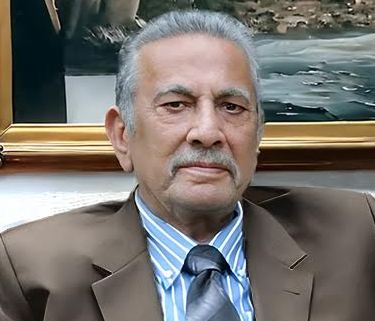ISLAMABAD, SEPT 22 (DNA) – Former President of the Islamabad Chamber of Commerce and Industry (ICCI), Dr. Shahid Rasheed Butt, said on Sunday that the performance of the export sector is disappointing.
Exporters take many benefits from the government, but their performance remains deplorable due to too much focus on profits, he said.
The whole focus of the export sector is on profit and packages, while there is no interest in increasing production and quality, competitiveness, innovation, or research and development, he added.
Shahid Rasheed Butt said in a statement today that Pakistan’s cotton production falls short of demand, costing the country billions of dollars in annual import losses.
On the other hand, he said, the world is reducing cotton production to provide food for the expanding population.
He noted that Pakistan’s powerful import lobby has been influencing important policies in its favor for decades, which has shaken the foundations of the economy.
On the other hand, the export lobby is addicted to bailout packages, tax breaks, and devaluation of the rupee, which affects 250 million people.
Currently, Pakistani exports exceed Bangladesh’s volume, but the superior quality of their export earnings makes them significantly higher than Pakistan’s.
Shahid Rashid Butt further stated that a team from National Textile University, backed by a Hyderabad-based investor, has successfully extracted fiber from banana peel and bark and made it usable for the textile industry, which has opened up new possibilities for Pakistan’s troubled textile sector.
This development has the potential to revolutionize the textile sector and bolster the struggling economy, as it transforms the fruit waste into raw materials for the production of textile fibers.
Consumers’ growing awareness of ethical fashion has led to an ever-increasing demand for the use of natural fibers in not just garments but the whole textile industry, he said.
He added that this invention will not only save billions of dollars in foreign exchange but also reduce environmental pollution by extracting one million tons of fiber from banana stems and turning them into yarn.
Farmers’ lives will change as a result of using 90% of the leftover banana crop waste to produce fertilizer and electricity.
The team is also targeting other countries known for banana production, with Kenya and Uganda being the first choice. In addition to bananas, the team extracts yarn from corn husks, other fruits, and vegetable waste. Many international brands use this yarn, and Pakistani exporters are also interested.
Natural fiber from banana trees consists of cellulose, lignin, and hemicelluloses. The appearance of banana fibers is similar to bamboo and ramie fibers, but they are known for their superior smoothness.
However, as there is a growing demand for eco-friendly textile fabrics, the significance of banana fibers is increasing.
Currently, he said, people use banana fiber to make garments, neckties, cushion covers, tablecloths, curtains, and other items. The physical properties of banana fibers, such as strong moisture absorption, natural shine, high strength, and minimal elongation, make them ideal for apparel production.
This versatile fiber offers an eco-friendly alternative to traditional textiles and supports sustainable fashion practices.
The use of fruits to extract fibers for fabric production represents a unique and innovative development in the field of fiber technology. Natural fibers like cotton, wool, silk, and linen have long been known to the textile industry, but the utilization of fruits is a new trend.
Shahid Rasheed Butt said that sugarcane production in Pakistan is in surplus, which can generate similar benefits. The fruit’s cane stalk, also known as bagasse, yields sugarcane fiber.
In some countries, the garment industry uses bagasse, a waste product, to make textile fibers. It also has immense potential application in the medical field.
The tenacity, softness, and biodegradability of the sugarcane fibers make them the perfect raw material for making disposable medical and commercial textiles. Manufacturers also use sugarcane fibers to manufacture denim pants and jackets.
In this regard, he demanded full cooperation from the concerned authorities to ensure the country fully benefits from the new development.

















